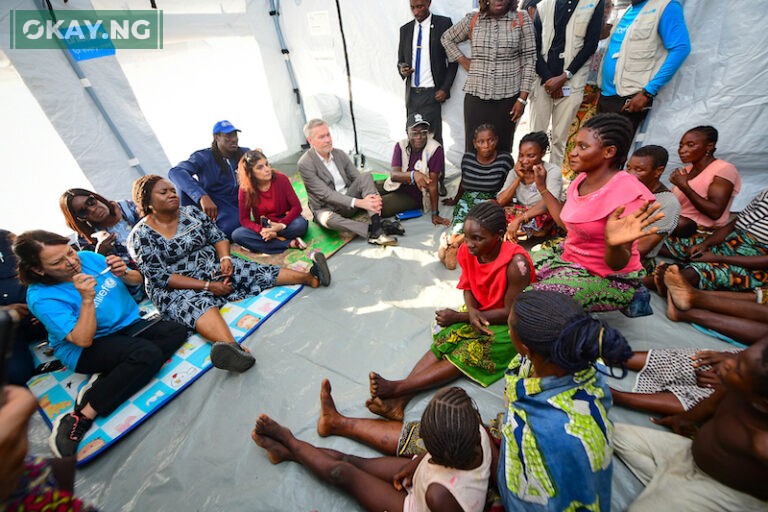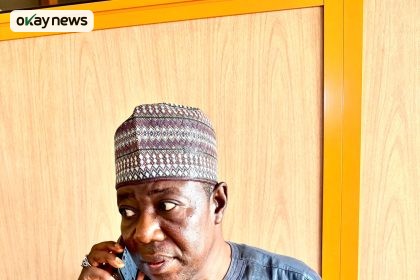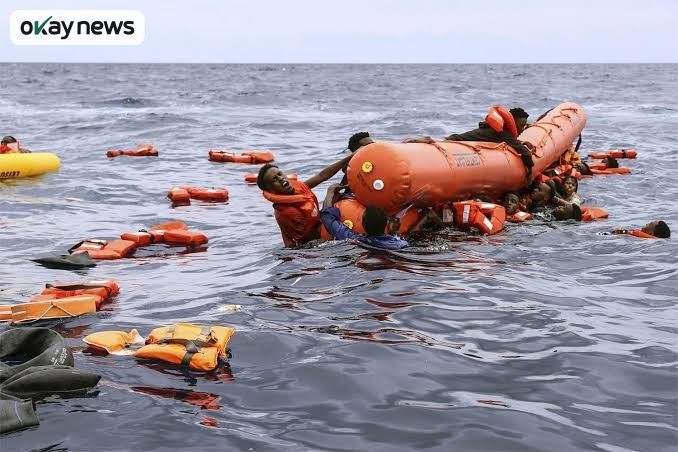In a significant move addressing humanitarian challenges in Nigeria, the European Union has pledged €1.5 million to provide urgent aid to victims displaced by the recent crisis in Yelwata and other internally displaced persons (IDPs) across Benue State and additional parts of the country.
This announcement was made during a press briefing held in Abuja by the EU Ambassador to Nigeria, Gautier Mignot, alongside officials from the Ministry of Humanitarian Affairs and Poverty Reduction.
Ambassador Mignot highlighted the nature of the EU’s partnership with Nigeria, emphasizing its reliability amid a changing global environment. Drawing attention to ongoing projects, he said, “The European Union is a special partner to Nigeria, and in this fast-evolving world—when some partnerships are profoundly reviewed—we want to be a reliable partner, a partner you can count on, a partner that keeps its commitments.” He further detailed that the funding includes immediate humanitarian relief through the EU’s humanitarian arm, ECHO, and additional support designed for long-term reintegration of displaced communities.
The Ambassador underscored the expansion of the “Support for Internally Displaced Persons in Nigeria” project, which originally excluded Benue State but has now extended to incorporate it, receiving an additional €1 million. “We are still working with our partners to implement this project efficiently and quickly and to explore other sources of support, particularly for peacebuilding,” Mignot added. He also urged increased collaboration across public and private sectors in Nigeria, stressing the importance of mobilizing domestic resources due to a decline in international aid: “It’s difficult to rely on additional support from the international community, which makes domestic mobilisation necessary, from the federal government, state governments, and the private sector, to address the needs and avoid shortages.”
Okay.ng reports that the EU’s support package comes amid rising humanitarian needs in Benue and other affected areas, where violence and displacement have ravaged communities, straining already limited resources. The combined €2.5 million ($2.7 million) package reflects both immediate and developmental interventions aimed at helping communities recover.
Speaking at the event, the Nigerian Minister of Humanitarian Affairs and Poverty Reduction, Prof. Nentawe Yilwatda, expressed gratitude toward the EU’s contribution and revealed plans to establish an Anticipatory Response Fund. This fund aims to reduce Nigeria’s dependence on external donors by enabling proactive response mechanisms to emergencies nationwide. “We will ensure that we rescue every soul that needs to be saved in Nigeria. This funding will go a long way in saving and rebuilding lives,” the minister remarked, highlighting pressing statistics: “Currently, 810 children are out of school, over 200 children are in IDP camps, and many face the risk of acute malnutrition. More than 100 businesses have been shut down in these communities. These are urgent needs that require immediate response.”
The Minister elucidated on the envisioned fund as a strategic tool to provide sustainable and timely responses to anticipated and sudden crises, stating, “We are working toward a permanent funding approach so that by next year, we don’t find ourselves scrambling for resources. An Anticipatory Response Fund will help us respond more effectively. That’s what the ministry is working on—to ensure these challenges are addressed in a sustainable manner.”
Plans include integrating the fund into the national budget with a focus on critical humanitarian issues such as malnutrition, displaced persons, and disaster response.
This collaborative humanitarian approach underscores a growing recognition that immediate relief efforts must be coupled with durable solutions that enable displaced populations to rebuild livelihoods and regain stability. The EU’s intervention, dovetailed with national initiatives, represents a vital step forward in addressing the critical needs of vulnerable communities in Benue State and beyond.







